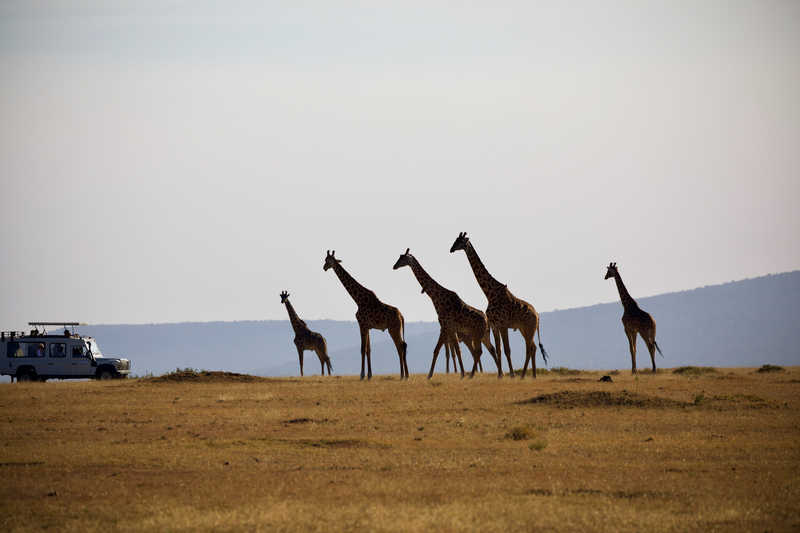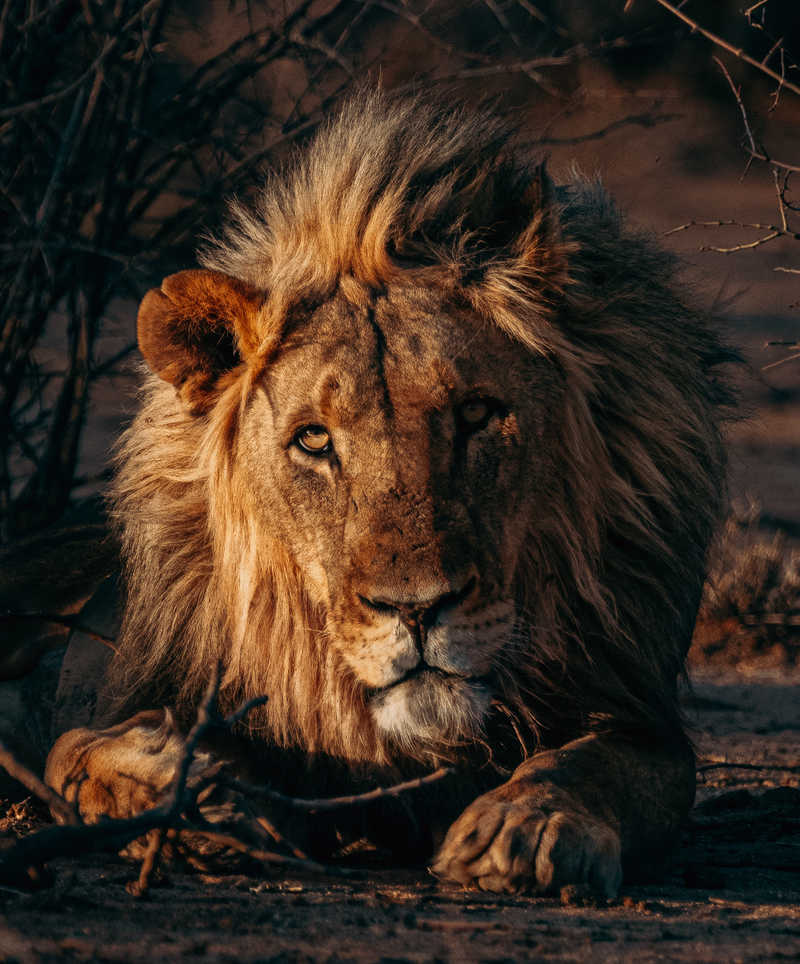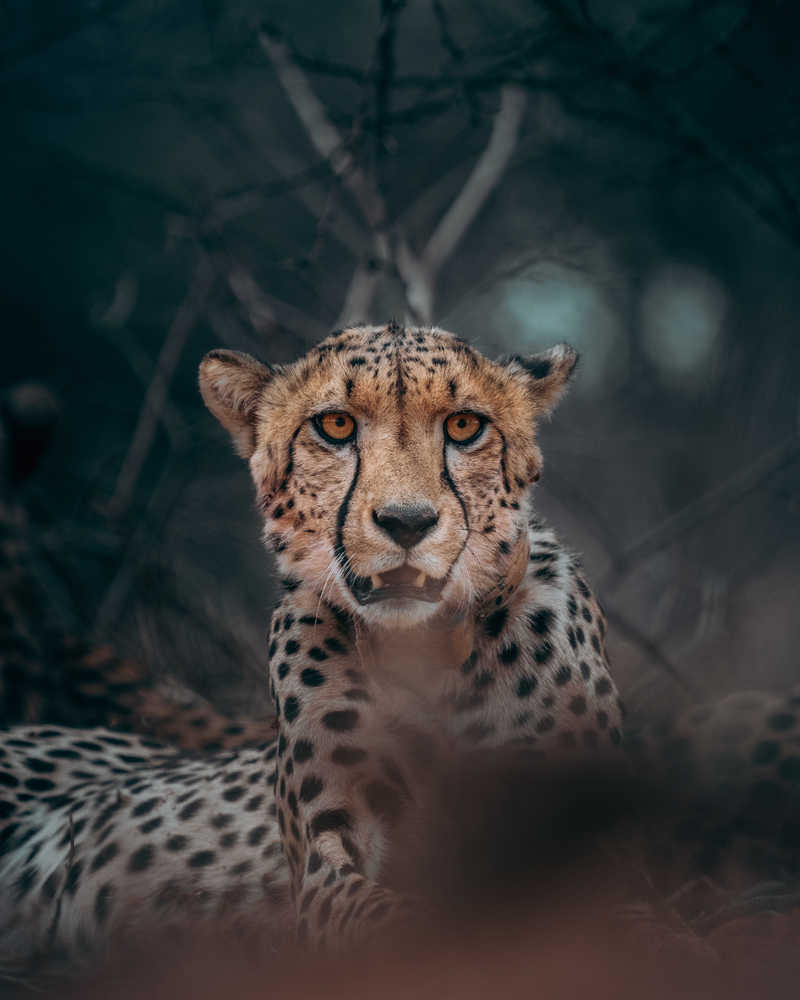Climb Mount Meru
- Kandoo Trekking
- Kandoo Summits
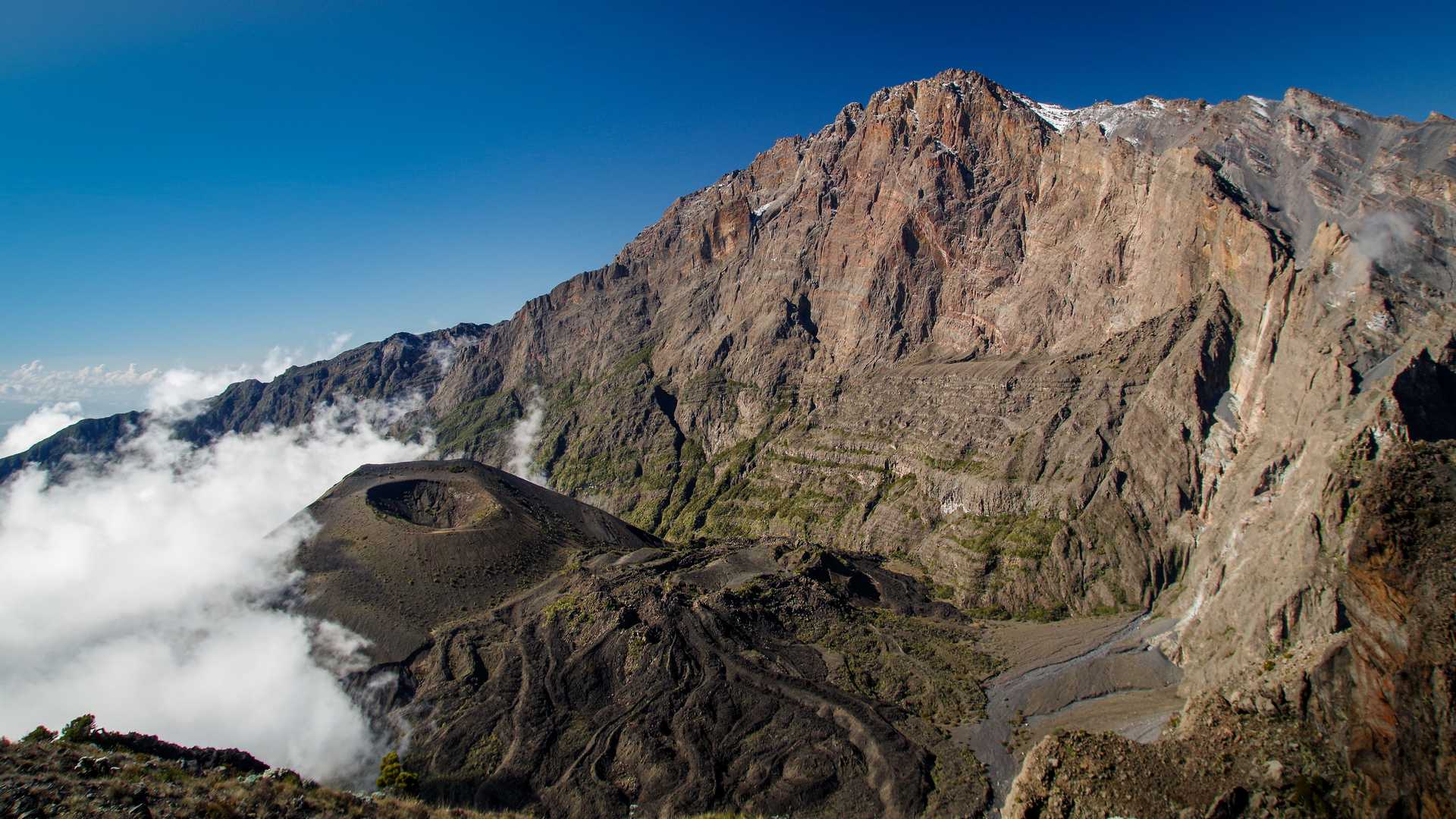
Contact
our UK team
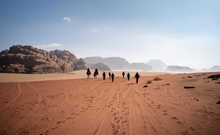
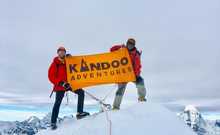
All trekkers need to organise their own flights to Kilimanjaro International Airport (JRO). From JRO we will arrange a private transfer to your hotel. That night or early the next morning you will meet your local Kandoo representative and have a full pre-climb briefing.
After breakfast we will collect you from your hotel and we will drive to Arusha National Park to check all our permits are in order at the Park Headquarters. We then proceed by vehicle until we reach Momella Park Gate where we start our trek. It is mandatory on this route that an armed Park Ranger accompanies us to ensure that we are safe against any wild animal threats. The trail leads us through montane forest, past waterfalls and oddly formed trees until we reach Miriakamba Hut.
As we climb higher up Mount Meru you will feel the air begin to cool and get slightly thinner. Today we will ascend over 1000 metres up to Saddle Hut at 3550m. This afternoon there is time to go for an acclimatisation hike a further 300 metres up to Little Meru at 3820m. Don't forget to take your camera to capture the views of Mount Kilimanjaro over 80 kilometres away.
We set off early around 2 a.m. following the path through scrubland to Rhino Point at 3820 metres. From here the route gets more demanding as we follow the narrow crater ridge until we reach the summit after approximately 4-5 hours. From Socialist Peak we will watch the sunrise over Kilimanjaro and have time to explore Meru's crater and ash cone. We then descend by retracing our steps back down to Saddle Hut and onwards to Miriakamba Hut and finally Momella Gate. Transfer to your hotel for a well-earned shower and celebration.
After a much needed night’s rest, we will bid you goodbye. If you have arranged airport transfers with us or a safari / Zanzibar trip, we will collect you in the morning for your onward journey.
Staying
well-fed on your climb is absolutely vital, especially when conditions are such
that you might not want to eat or drink as much as you should. Because
so many climbers experience a loss of appetite at altitude, our head chef has
developed special menu plans that are appealing, healthy, and filled with all
the energy you need to make it to the summit. By default, our meals include fresh meat, fruit and vegetables every day.
BREAKFAST
Breakfast
is usually fairly hearty, and includes porridge, sausage, eggs and toast with
marmalade or jam. Of course, you’ll also have hot drinks, generally a choice
of tea, coffee or hot chocolate. Let your guide know if you are still hungry,
or even if you think you could ‘pack in a few more bites’. Our cooks always
try to provide more food than necessary to ensure everyone gets a good meal.
LUNCH
Lunch
is either packed for you, to carry in your rucksack, or we stop for a hot
cooked lunch depending on your itinerary. A typical packed lunch is a boiled
egg, sandwiches, a portion of chicken, crisps, snack bar, fresh fruit and a
drink.
AFTERNOON
TEA
Afternoon
Tea is served at the end of the day’s walking, once you get to camp. In
addition to tea and other hot drinks, there are plenty of peanuts, popcorn,
biscuits and snacks to help restore some of the energy you’ve just burned
off.
DINNER
Dinners
are quite filling. They usually begin with a nice hearty soup, and then a
main course such as chicken curry, spaghetti bolognese,
fresh vegetables, and plenty of rice, pasta or potatoes, followed by a yummy
dessert such as pancakes or banana fritters with maple syrup or nutella!
On the climb we treat all the water that
we give to you for drinking with water guard tablets. Every morning we will
fill up your water bottles or hydration bladder with at least 3 litres of
water. As members of Travellers Against Plastic, we do not encourage the use of
disposable plastic water bottles. Any bottles you take on the mountain must be
proper, reusable drinks bottles.
Mount Meru uses a mountain hut system instead of tents. Rooms are small, sleeping 4 people on bunk beds, but comfortable.
Mattresses, sheets and pillows are provided by the park service but you still
need to bring a sleeping bag.
Rooms have solar powered lighting but no
electrical sockets. Your meals will be served in an indoor dining area.
On a
typical day on the mountain, your guide will wake you up to a hot drink and
warm water for a wash. After that, you’ll need to get your kit and other
belongings packed. As you eat breakfast, your guides will brief you on the plan
for the day’s climb and perform your health check. They will also address any
questions or concerns you may have.
When
you arrive at the next camp, there will be hot water for a quick wash, and hot
drinks and snacks waiting. You will generally have time for a short
acclimatisation trek before dinner, where you will venture up to a higher
altitude and have a chance to get used to hiking in more strident conditions
before returning to camp for dinner and a rest. As we say, ‘walk high, sleep
low’. After dinner there will be time for your second health check, a
debriefing on the day’s climb with your guides, and to discuss anything that
might be on your mind. If you are having any trouble or discomfort, please do
let your guides know.
It is
compulsory to trek with an armed ranger on Mount Meru. Several groups from
different operators will be assigned to one ranger, so even though you have
booked your climb with Kandoo and we will be providing the logistics for your
trip, you will be trekking each day with other people who are not Kandoo
clients. The pace that is set on the climb is dictated by the overall group.
We insist on using a high standard of
vehicle and driver for all of our transfers. In Tanzania it is not a legal
requirement to have seatbelts fitted in the back of vehicles, and while we try
to use vehicles that do have rear seatbelts fitted, this cannot always be
guaranteed. If you are unhappy about any aspect of the vehicle or the standard
of driving, please speak to the driver or our local office immediately. Please
note that it is a common occurrence in Tanzania for vehicles to be stopped by
the police to check the driver’s documentation and this can seem quite
intimidating when you cannot understand what is being spoken. If your vehicle
is stopped, this is not a reflection on the state of your vehicle or your
driver’s performance.
Kandoo Adventures operates an
absolutely strict limit of 15kg per porter for your main equipment bag. This
limit includes your sleeping bag, even if it
is rented from us. This is more than sufficient for your needs on the
mountain. Your bag will be weighed before you leave the hotel to start the
climb and if it is overweight you will have to take items out and leave them at the hotel.
The Tanzanian Shilling is a closed currency so you will not be able to buy this before you arrive. It is advisable to travel with US Dollars, as these are widely accepted. It is very important that US bills be new (no more than 10 years old), crisp and untorn. If you want some local currency to purchase snacks or drinks either at your hotel or on the way to the climb then we can take you to an ATM or bank. There is also a currency exchange as you go through to the Baggage Collection area of the airport.
If you are relying on a credit or debit
card for emergency funds, make sure you tell your card issuer that you will be
using it abroad, or you may find that it won't work when you really need it.
Please
Note that
not all hotels can accept card payments so you may need to use an ATM to access
funds.
We work closely with the Kilimanjaro
Porters Assistance Project for our Kilimanjaro
climbs, and follow their recommended procedures for our Mount Meru climbs as
well. To
give you a guide, KPAP recommended tips for porters are in the range of
$6-10/day per porter. For other roles we recommend $20/day for guides,
$12-15/day for assistant guides and the park ranger and $12-15/day for cooks. These figures
are per group, not per climber. The size of your crew can only be confirmed on
the first day of the climb once all the bags and equipment have been weighed at
the park gate. At the first camp you will be advised of the final number of
crew and their position on the climb.
The tipping announcement will take place
on the last night on the mountain when all the crew will gather together to
celebrate with you. One representative from your group should say a few words
of thanks, which will be translated by the lead guide into kiSwahili.
Due to recent thefts on Kilimanjaro, we
no longer advise our clients to carry cash with them during the climb, so the
actual tip money will be presented when you return to your hotel. Your group
will be supplied with envelopes to assist with the distribution of tips – one
envelope for the porters and a separate envelope that you can use to tip your
lead guide, assistant guides and cook. Three porter representatives will come
to the hotel to accept the tip envelope on behalf of all the porters, and they will
distribute the money themselves.
Tips can be made in US dollars or
Tanzanian Shillings. It is very important that US bills be new (post 2006), crisp and untorn.
All
payments are made locally in US
Dollars (cash only)
These
items must be packed in your main
equipment bag.
They
should not be attached to the outside, as we are not responsible if items
fall off when the bags are being carried up the mountain. The sleeping bags
weigh approximately 2.6kg each
UPPER
BODY
LEGS
OTHER
ACCESSORIES
Want to ask us a question or book a private trip? Don't hesitate to contact us!
Contact us